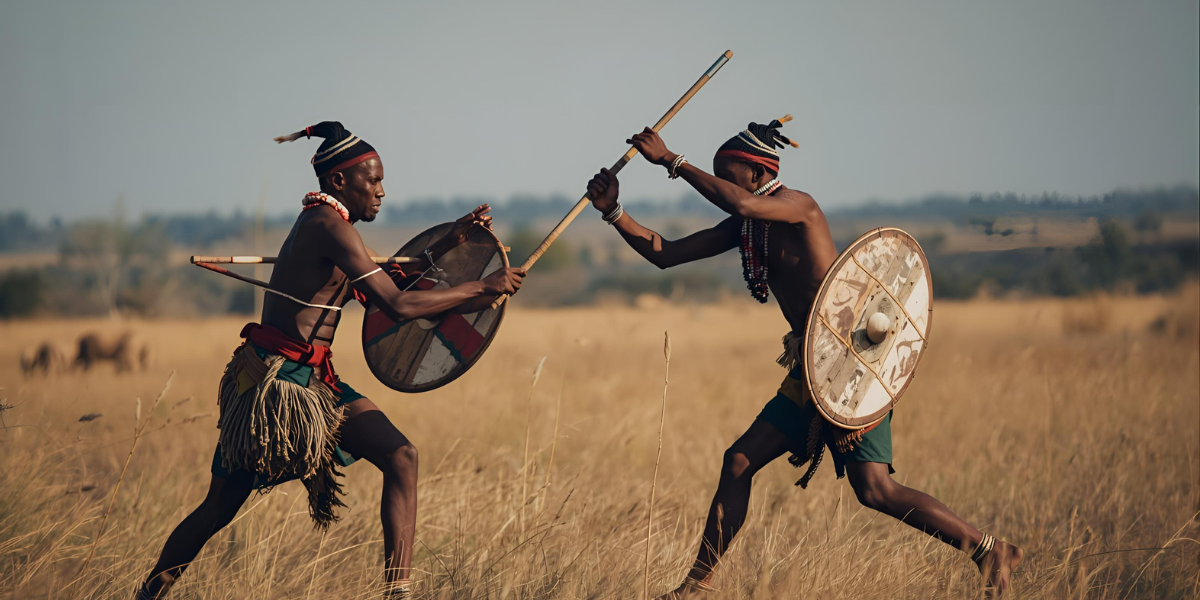stick fight: 5 Shocking Reasons Behind the Zulu King’s Bold Challenge
The ancient tradition of stick fight has once again captured the spotlight after the Zulu king openly challenged a professor to a duel. This unexpected move sparked heated debates about cultural heritage, modern values, and the meaning of honor in today’s world. Beyond the drama, the challenge reveals deeper truths about identity and tradition that still resonate strongly in South Africa and beyond.
stick fight and the Weight of Tradition
The practice of stick fight is more than just combat; it is a deeply rooted cultural expression among the Zulu people. For centuries, young warriors engaged in these duels to prove courage, discipline, and skill. By reviving this tradition in a public challenge, the Zulu king is not merely inviting a professor to fight he is reminding the world that culture is alive and should not be dismissed as a relic of the past.
A Clash Between Academia and Ancestry
When the Zulu king directed his stick fight challenge toward a professor, it highlighted the tension between academic criticism and ancestral pride. Scholars often analyze traditions through theories and modern frameworks, sometimes overlooking the emotional and spiritual value they hold within communities. This clash is not just about physical combat, it is about who gets to define the worth of tradition in today’s society.
Honor, Ego, and Public Spectacle
Stick fight challenges are rarely private affairs. By issuing this dare so publicly, the Zulu king transformed it into a spectacle of pride, ego, and cultural defense. Supporters argue that the professor was disrespectful, and the king responded in the only way tradition permits. Critics, however, see it as an outdated and dangerous way to resolve disputes. The truth likely lies in the emotional power such traditions still command.
The Global Attention
The Zulu king’s stick fight challenge did not stay confined to South Africa. International media outlets quickly reported the story, fueling conversations about cultural identity, respect, and the limits of tradition in a modern world. What might seem like a local event resonates globally because it represents the universal tension between heritage and progress. Articles from trusted sources such as BBC News highlight how such moments spark worldwide curiosity and debate.
stick fight as a Symbol of Resistance
For many, the stick fight symbolizes resistance against cultural erasure. In a world where globalization often threatens to dilute traditions, the king’s bold act can be seen as a stand for cultural survival. This duel is not simply about pride or personal dispute, it echoes a broader struggle for indigenous voices to remain heard and respected in the face of modern pressures.
Generational Divide Over stick fight
The Zulu king’s challenge also exposed a clear generational divide. While older supporters celebrate the return of tradition, younger critics view stick fight as outdated or even unsafe. This contrast shows how cultural practices evolve or resist change across time. The professor, representing intellectual modernity, stands in stark contrast with the king, representing ancestral continuity, making the duel more symbolic than physical.
Media Reactions
The stick fight challenge quickly became a trending topic on social media, where opinions were sharply divided. Some praised the Zulu king for defending tradition, while others mocked the idea as primitive. Memes, debates, and even online petitions reflected how deeply the story touched people, showing the powerful role media plays in shaping narratives about culture and conflict.
Cultural Identity
At its core, the stick fight challenge is not just about two men, it is about cultural identity. For the Zulu people, traditions like these are reminders of who they are and where they come from. Losing such practices could mean losing a vital part of their collective memory. In this sense, the king’s challenge serves as a rallying cry to preserve cultural uniqueness in an increasingly uniform world. For related insights on preserving cultural heritage, you can read this article on my site.
The Risk Factor
While stick fight carries symbolic value, it also raises concerns about physical safety. Injuries can be severe, and critics argue that there are better ways to protect honor in the modern age. Yet supporters counter that danger is part of the tradition’s authenticity, adding to its meaning and respect. This tension between safety and authenticity keeps the debate alive and emotionally charged.
The Future of it
The question now is whether stick fight will continue as a living tradition or fade into symbolic gestures. The Zulu king’s bold challenge may inspire a revival, encouraging young people to reconnect with their cultural roots. On the other hand, ongoing criticism could pressure leaders to adapt or even abandon such practices. The future of stick fight rests on how communities balance pride in their past with responsibility for their present and future.
Conclusion
The Zulu king’s public challenge to a professor has turned stick fight into more than a traditional duel, it has become a symbol of cultural pride, identity, and resistance. While opinions remain polarized, the debate has succeeded in reigniting global interest in indigenous traditions. Whether one views it as reckless or empowering, one truth is clear: stick fight remains a powerful reminder of how heritage can shape our present and inspire our future.




